Breaking News


Popular News

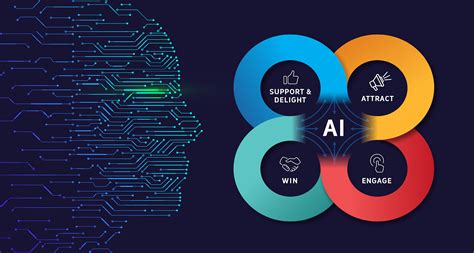
Unlock the power of AI in marketing with personalized recommendations, predictive analytics, dynamic content, and more. Measure ROI and implement AI in your email marketing strategy.In today’s fast-paced digital landscape, the use of artificial intelligence (AI) in marketing has become increasingly prevalent. AI offers a powerful tool for businesses to better understand and target their customers through personalized marketing strategies. From customer segmentation to predictive analytics, AI is revolutionizing the way companies engage with their audiences and drive sales.
In this blog post, we will explore the various ways in which AI is shaping personalized marketing strategies. We will delve into the applications of AI in customer segmentation, personalized recommendations, and predictive analytics, and how these technologies are revolutionizing the way marketers connect with their target audiences. Additionally, we will discuss the implementation of AI in email marketing, dynamic content creation, and measuring the return on investment (ROI) of AI marketing strategies.
Join us as we unpack the role of AI in personalized marketing strategies and discover how businesses can leverage this technology to drive growth and engagement.
Contents
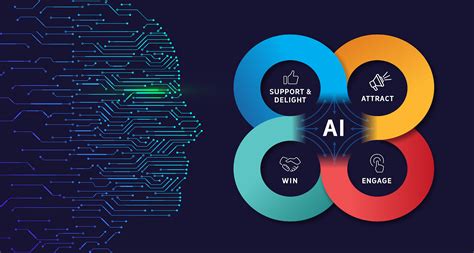
Artificial Intelligence (AI) has become an integral part of marketing strategies in recent years, revolutionizing the way businesses connect with their customers. Understanding how AI is utilized in marketing can help companies stay ahead of the competition and deliver more personalized experiences to their target audience.
One of the key applications of AI in marketing is customer segmentation. By using machine learning algorithms, businesses can analyze large datasets to identify different customer segments based on their preferences, behaviors, and demographics. This allows marketers to tailor their messaging and offerings to specific groups, increasing the relevance and effectiveness of their campaigns.
Another powerful use of AI in marketing is in personalized recommendations. E-commerce companies, streaming services, and other businesses leverage AI to analyze customer behavior and preferences, delivering personalized product recommendations, content suggestions, and offers. This not only enhances the customer experience but also boosts engagement and conversion rates.
Furthermore, predictive analytics powered by AI enables marketers to anticipate customer needs and behaviors, allowing them to proactively engage with their audience. By analyzing historical data and patterns, AI can forecast future trends and identify opportunities for targeted marketing campaigns and tailored content.
| Benefits of AI in Marketing |
|---|
|
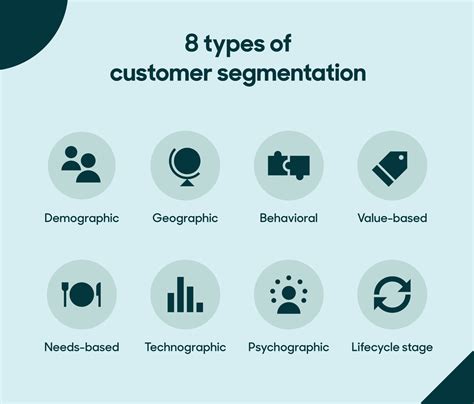
Customer segmentation is crucial in creating personalized marketing strategies that are tailored to the specific needs and preferences of different customer groups. With the advancements in Artificial Intelligence (AI), businesses can now leverage AI technology to effectively segment their customer base and target them with relevant and personalized marketing messages.
One way businesses can utilize AI for customer segmentation is through the use of machine learning algorithms to analyze large volumes of customer data and identify patterns and trends. By doing so, businesses can gain valuable insights into their customer base and segment them based on factors such as demographics, behavior, and preferences.
AI-powered customer segmentation allows businesses to target customers with personalized messages, offers, and product recommendations, leading to higher engagement and conversion rates. It enables businesses to deliver the right message to the right audience at the right time, ultimately improving the overall customer experience and driving business growth.
| Benefits of AI for Customer Segmentation |
|---|
| 1. Enhanced targeting and personalization |
| 2. Improved customer engagement and retention |
| 3. Increased marketing efficiency and ROI |
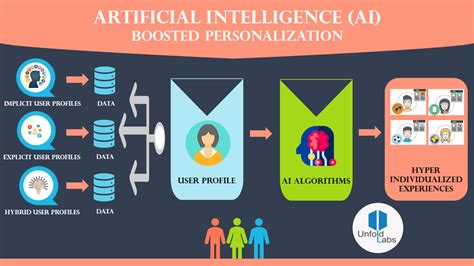
Artificial intelligence has revolutionized the way businesses approach personalized marketing strategies, and one of the key areas where AI has made a significant impact is in driving personalized recommendations. With the vast amount of data available, AI algorithms can analyze customer behaviors, preferences, and interactions to provide tailored product recommendations that are more likely to result in conversions. By leveraging AI-driven personalized recommendations, businesses can enhance customer experience, increase engagement, and ultimately drive sales.
Utilizing AI for personalized recommendations involves the use of advanced machine learning algorithms that can process and interpret large volumes of customer data with speed and accuracy. These algorithms can identify patterns, trends, and correlations within the data to understand individual customer preferences and predict their future behavior. This enables businesses to deliver personalized product recommendations that are highly relevant to each customer, leading to a more personalized and targeted approach to marketing.
Implementing AI-driven personalized recommendations also enables businesses to automate the process of delivering tailored product suggestions across various customer touchpoints such as websites, mobile apps, and email campaigns. This level of personalization can significantly enhance customer engagement and retention, as customers are more likely to respond positively to personalized recommendations that align with their interests and needs.
In conclusion, AI-driven personalized recommendations have become an essential component of modern marketing strategies. By leveraging the power of AI to analyze customer data and deliver personalized product recommendations, businesses can enhance customer experience, increase engagement, and drive conversions. As AI technology continues to advance, the potential for personalized marketing will only continue to grow, making it a crucial area for businesses to invest in for long-term success.

AI-powered predictive analytics is revolutionizing the way businesses make decisions and engage with their customers. By leveraging advanced algorithms and machine learning, companies can now analyze vast amounts of data to predict future outcomes and trends. This enables marketers to make data-driven decisions, anticipate customer behavior, and personalize their marketing efforts.
With the help of AI-powered predictive analytics, businesses can gain valuable insights into customer preferences and behavior, allowing them to tailor their marketing strategies to individual customers. This results in more targeted and effective marketing campaigns, ultimately leading to higher customer engagement and ROI.
One of the key advantages of AI-powered predictive analytics is its ability to automate the process of analyzing data and identifying patterns. This not only saves time and resources, but also enables marketers to uncover valuable insights that may have been overlooked using traditional analytics methods.
Furthermore, AI-powered predictive analytics can also be used to forecast future market trends and identify potential opportunities for growth. This allows businesses to stay ahead of the competition and adapt their marketing strategies accordingly, ensuring continued success in an increasingly competitive marketplace.

Implementing AI in email marketing can significantly improve the effectiveness of your campaigns. By utilizing AI-powered algorithms, you can personalize the content of your emails based on the recipient’s behavior and interactions with your brand. This can lead to higher open and click-through rates, as well as increased engagement and conversion.
One way to implement AI in email marketing is by using predictive analytics to identify the best time to send each email to maximize the chances of it being opened and acted upon. AI algorithms can analyze data such as past email open times and recipient behaviors to make accurate predictions about the optimal timing for each individual on your email list.
Another way to leverage AI in email marketing is by using dynamic content creation. AI algorithms can analyze recipient data to create personalized subject lines, email body content, and call-to-action buttons, resulting in a more tailored and engaging experience for each recipient.
Additionally, AI can help marketers automate and optimize the segmentation of their email lists. By using AI-driven customer segmentation, marketers can identify specific buyer personas and target them with highly relevant content, leading to better engagement and higher conversion rates.
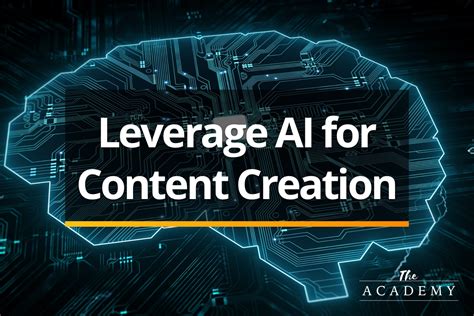
The Role of AI in Personalized Marketing Strategies
Artificial Intelligence (AI) is revolutionizing the way businesses approach content creation and marketing. With the ability to analyze vast amounts of data in real-time, AI has empowered marketers to create personalized and dynamic content that resonates with their target audience.
One of the key benefits of leveraging AI for dynamic content creation is the ability to deliver tailored messaging to individual customers at scale. By utilizing AI-powered algorithms, marketers can analyze customer behavior, preferences, and purchasing history to deliver personalized content in real-time.
Furthermore, AI enables marketers to automate the content creation process, saving time and resources while ensuring that the content is relevant and engaging. This allows businesses to create and distribute a large volume of dynamic content across various channels, without sacrificing quality or relevance.
Additionally, AI-driven dynamic content creation can significantly improve the efficiency and effectiveness of marketing campaigns. By continuously analyzing and optimizing content performance, marketers can ensure that their messaging is always resonating with their target audience, leading to increased engagement and conversion rates.
| Benefits of AI in Dynamic Content Creation |
|---|
| Personalized messaging at scale |
| Automated content creation process |
| Improved efficiency and effectiveness of marketing campaigns |

Implementing AI in marketing strategies has become increasingly important for businesses looking to stay competitive in the digital landscape. With the vast amount of data available, leveraging AI-powered predictive analytics can help marketers make more informed decisions and optimize their campaigns for maximum effectiveness.
One of the key metrics for evaluating the success of AI marketing strategies is the ROI or return on investment. By utilizing AI for customer segmentation, personalized recommendations, and dynamic content creation, marketers can measure the impact of their efforts and determine the ROI of their AI marketing initiatives.
| Measuring ROI of AI Marketing Strategies | ||
|---|---|---|
| Customer Segmentation | Personalized Recommendations | Dynamic Content Creation |
| Utilize AI algorithms to segment customers based on behavior, preferences, and demographics. | Deliver personalized product recommendations based on individual user data and purchase history. | Create dynamic content that adapts to user behavior and preferences, improving engagement and conversion rates. |
By measuring the impact of AI marketing strategies on metrics such as customer acquisition cost, conversion rate, and customer lifetime value, businesses can assess the ROI and optimize their marketing investments for better results. With the advancements in AI technology, the ability to measure and analyze the ROI of AI marketing strategies will continue to be a critical aspect of driving growth and success in the digital marketing landscape.

What is personalized marketing?
Personalized marketing is the practice of tailoring marketing efforts to individual customers based on their specific preferences, behaviors, and demographics.
How can AI be used in personalized marketing strategies?
AI can be used in personalized marketing strategies to analyze large amounts of customer data, predict customer behavior, automate personalized content and recommendations, and optimize marketing campaigns in real-time.
What are the benefits of using AI in personalized marketing?
The benefits of using AI in personalized marketing include improved customer engagement, increased conversion rates, better customer retention, and more effective use of marketing resources.
What are some examples of AI-powered personalized marketing?
Examples of AI-powered personalized marketing include personalized product recommendations on e-commerce websites, targeted email marketing based on customer behavior, and dynamic website content tailored to individual visitors.
Are there any privacy concerns related to using AI in personalized marketing?
Yes, there are privacy concerns related to using AI in personalized marketing, such as the collection and use of personal data, the potential for data breaches, and the need for transparent data usage policies.
How can businesses ensure ethical use of AI in personalized marketing?
Businesses can ensure ethical use of AI in personalized marketing by being transparent about data collection and usage, obtaining customer consent for personalized marketing efforts, and following relevant data privacy regulations.
What is the future of AI in personalized marketing?
The future of AI in personalized marketing is likely to involve even more sophisticated algorithms and machine learning models, as well as increased emphasis on ethical and transparent use of customer data.